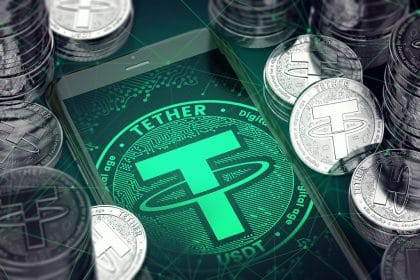Overall, $6.6 billion worth of Tether (USDT) now exists on the TRON blockchain, and between 300-400k USDT transactions are conducted each day on TRON making it arguably the number one network for USDT.
If you’re a stablecoin user, odds are you are aware that Tether (USDT), the most popular USD-backed stablecoin, is available to use on multiple different networks.
There’s the original Omni-based Tether, based on top of the Bitcoin blockchain, and there’s also a variety of tokenized Tether assets available on various popular blockchains, including Ethereum, TRON, EOS, Liquid, and Algorand.
But although all these blockchains offer essentially the same thing as far as Tether holders are concerned (a stable digital asset backed by US dollars), TRON has rapidly emerged as the fastest-growing blockchain for USDT issuance.
The circulation amount of #TRC20–#USDT issued by @Tether_to on #TRON network exceeded 6.6 Billion🎉🎉🎉🎊🎊🎊 pic.twitter.com/MTfAl1kWOr
— H.E. Justin Sun 孙宇晨 (@justinsuntron) December 22, 2020
In 2020 alone, the amount of USDT issued on TRON climbed from just $1 billion in January to over $6.6 billion as of December 2020 – reaching its highest ever value this year. TRON is now quickly gaining on Ethereum as the most popular blockchain for USDT, and could be set to become the number one blockchain for the stablecoin by mid-2021 if its rate of growth continues.
But if one USDT is equivalent to any other, you might be wondering why USDT on TRON is picking up such momentum. Well, there are several main reasons.
The first reason is that transactions on the TRON blockchain are typically confirmed far quicker than on similar blockchains, like Ethereum or Omni. Rather than taking minutes to confirm, or potentially longer during times of load, TRON transactions reach finality within just seconds in most cases. This means USDT-TRON is better suited for traders, who often need to move their funds around with haste.
This is also amplified by the rapid development of the TRON DeFi landscape, which now consists of JustSwap, JustLink, JustLend, and a whole host of other DeFi protocols which have attracted considerable interest in the last six months. As users increasingly turn to stablecoins to leverage the benefits of DeFi solutions, USDT has seen its popularity skyrocket on both TRON and Ethereum – the two most popular platforms for DeFi applications.
Lastly, USDT transfers on TRON are completely free, meaning users are able to avoid the potential $10+ fee that can come with transferring USDT on ETH during peak network load. This has proved to be an issue for the further growth of Ethereum’s DeFi landscape, as many popular Ethereum DeFi protocols are essentially out-of-bounds for regular users when the network is congested, as the fees associated with invoking Ethereum smart contracts can reach $50+.
USDT-TRON now consistently exceeds USDT-ETH in terms of daily transaction volume. Photo: Tokenview
As a result, USDT-TRON is now the most used version of USDT and has consistently racked up more transactions per day than any other blockchain since August 2020 – just after TRON launched its first major DeFi platform JustSwap.
Overall, $6.6 billion worth of Tether (USDT) now exists on the TRON blockchain, and between 300-400k USDT transactions are conducted each day on TRON making it arguably the number one network for USDT – despite launching just last year.
